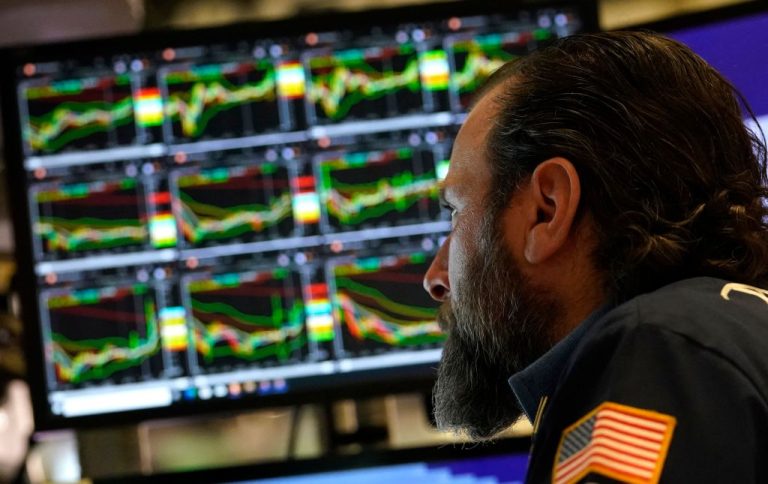A third regional bank saw its shares obliterated in May 3rd’s post-market trading session after an article released by The Wall Street Journal alleging the firm’s financial troubles hit the airwaves shortly after the Federal Reserve hiked interest rates another 25 basis points.
The bank in question is PacWest Bancorp, which already saw shareholders crushed during the first wave of the regional bank crisis in early March when Silicon Valley Bank, a key bridge between mainland China and the U.S. venture capital markets, and Signature Bank and Silvergate Capital Corp, two digital currency-servicing banks, collapse.
Over a three day period between Thursday, March 9 and Monday, March 13, PacWest fell from a high of $25.43 to a low of $5.00.
The stock recovered somewhat, printing a high of $12.08 on April 26 following a disastrous Q1 earnings call that saw executives report a loss of $10.22 per share compared to analyst estimates of a $0.607 return.
As news hit that the embattled First Republic Bank, which serviced an elite clientele, was truly insolvent hit late on Friday, April 28, the final trading day of the month, May has not opened well for regional banks.
Success
You are now signed up for our newsletter
Success
Check your email to complete sign up
PacWest saw half its value destroyed when it collapsed on May 1 from $10.52 to a low of $5.26 the next day as news that the FDIC had seized First Republic and it had been sold to Wall Street champion JPMorgan made the rounds.
The timing of the May 1-2 dump was called “curious” in an article by Seeking Alpha, which noted that “the new rout comes after a period of calm and coincides with the Milken Institute Global Conference in Beverly Hills.”
Author Logan Kane posed to readers, “Do the traders dumping PacWest know something we don’t?”
Before analyzing, “Buying PacWest here carries an enormous adverse selection problem, so I wouldn’t buy the dip.”
After JPMorgan purchased First Republic, CEO Jamie Dimon boldly stated the regional banking crisis was over when he told analysts, “There are only so many banks that were offsides this way,” CNBC reported.
Dimon added, “There may be another smaller one, but this pretty much resolves them all … This part of the crisis is over.”
But whether Dimon’s comments stand true, the fireworks were evidently only getting started.
Following chaos in the market-at-large typical of a May 3 Federal Open Market Committee Day that included another 25 basis points hike, bringing rates to 5.25 percent, the PacWest closed the day at $6.42, appearing to stanch the hemorrhaging with a meager 1.98 percent loss compared to the prior day’s closing price, giving investors something of a sigh of relief.
But breathing room was not to last as WSJ published a piece titled “PacWest Is Weighing Strategic Options, Including Possible Sale,” that cited anonymous “people familiar with the matter” to break the news to the public that PacWest “has been working with a financial adviser and has also been considering a breakup or a capital raise.”
An innocuous enough comment on its own it was. However, the Journal immediately added, “An outright sale has been hindered because there aren’t many potential buyers interested in the entire bank, which comprises a community lender called Pacific Western Bank and some commercial and consumer lending businesses.”
WSJ finally got to the point when it said, “A potential buyer would also have to potentially book a big loss marking down some of its loans, the people said.”
Allegations were compounded by a similar article published by Reuters, which stated that PacWest “is exploring strategic options, including a potential sale or capital raise, after a liquidity boost it announced in March failed to inspire confidence in its ailing share price.”
Reuters likewise cited an unidentified “person familiar with the matter.”
The news led to PacWest shares dropping another 53.44 percent before after hours trading concluded for the evening, closing at $3.05 per share, representing an obliteration of more than $375 million worth of the bank’s remaining market capitalization.
PacWest wasn’t the only regional to be rocked by the news. The contagion spread so far that three other banks, Valley National Bancorp, Zions Bancorp, and First Foundation all fell between 10 and 13 percent in the May 3 post-market session.
Six other regionals lost between 4 and 7 percent in the session as well.
In a secondary article chronicling the landslide published by the Wall Street Journal, the outlet quoted analyst Adam Crisafulli, who told clients in a market conditions note that the sector “faces huge earnings question marks going forward as funding and deposit costs rise alongside provisions just as the regulatory environment turns more stringent.”
Financial institutions like Silicon Valley Bank found themselves in a jam after a business model that revolved around making speculative loans to startups in hopes of being repaid if they were purchased by a larger firm collided with a very rapid Federal Reserve rate hiking cycle causing the treasury bonds and corporate bonds they vested customer deposits in taking huge face value losses.
Crisafulli cautioned, “However, it’s important to remember that Silicon Valley and First Republic were unique, and investors shouldn’t simply extrapolate what happened to them to the whole regional landscape.”
As of time of writing, there appears to be no indication that the FDIC intends to seize and sell PacWest as it did Silicon Valley Bank and First Republic.
















